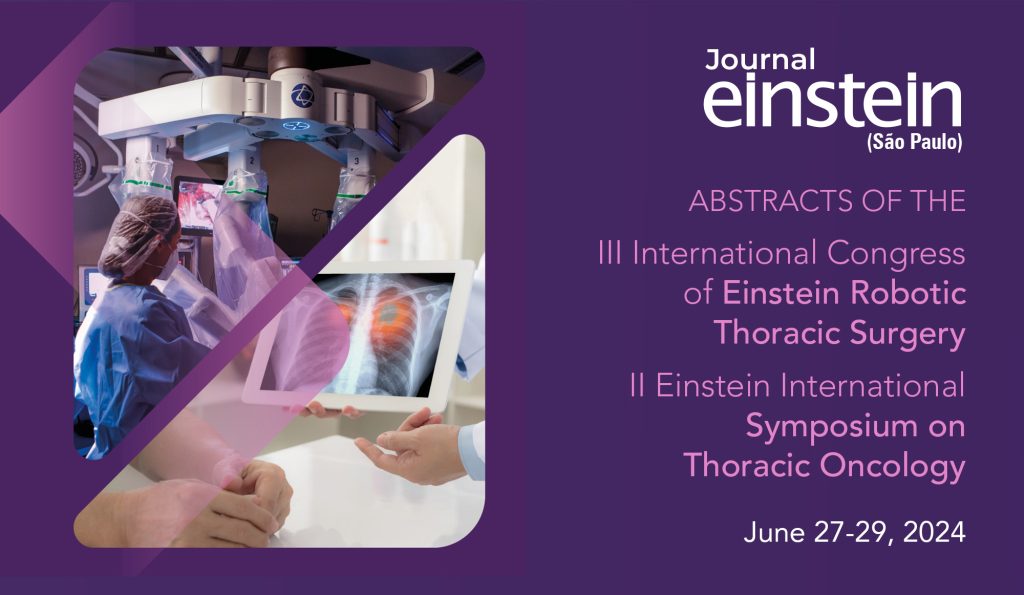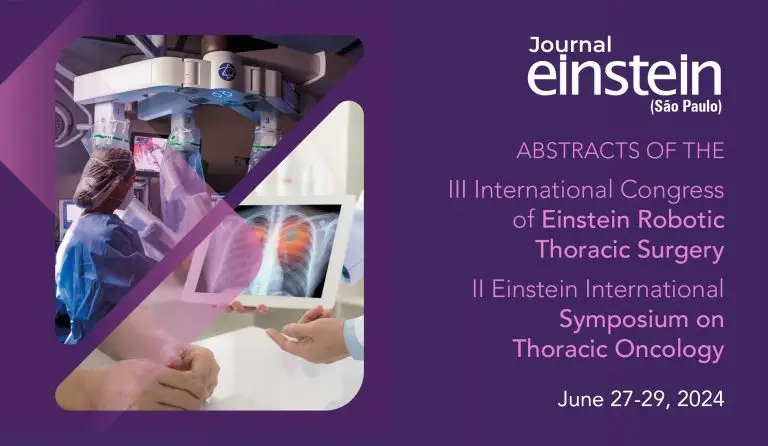einstein (São Paulo). 25/Jun/2024;22(Suppl 1):STO006.
Cytological and histological scraping slides for DNA extraction in next-generation sequencing: refining molecular diagnosis of non-small cell lung cancer
DOI: 10.31744/einstein_journal/2024ABS_BTS_STO006
Category: Thoracic Oncology
Introduction:
Genomic mutational profiling, obtained through next-generation sequencing (NGS) plays a pivotal role in assisting clinicians in therapeutic decision- making in patients with non-small cell cancer (NSCLC).(,) However, these techniques require high quality and sufficient quantity of material to produce reliable results.(,) Our study proposes the use of tissue scraping from histological and cytological slides as an alternative method for obtaining genomic DNA (gDNA) of better quality and quantity, and also an optimized extraction protocol from paraffin samples of NSCLC.
Methods:
Forty-three samples were analyzed, collected between 2011 to 2019, comprising aspirates from mediastinal lymph nodes (MLN) obtained by endobronchial ultrasound-guided transbronchial needle aspiration (EBUS-TBNA) and surgically resected and biopsies specimens of primary tumors (PT). To comparative study we also precisely followed the manufacturer’s GeneRead® DNA FFPE Kit (Qiagen GmbH, Hilden, Germany) protocol as “gold standard”, and an adapted protocol from Qiagen kit was used from FFPE and scraped slides samples.
Results:
The findings demonstrated significantly higher yields of gDNA extracted from scraped slides compared to the same material obtained from FFPE blocks (p<0.001). Even when comparing different extraction methods for MLN and PT samples, the yield from slide-scraping samples remained notably higher than those obtained from blocks sections (p=0.003 and p<0.001, respectively).
Conclusion:
Our findings indicate that material extracted from histological and cytological scraped slides presents an excellent alternative for obtaining gDNA for genomic studies. This approach yields higher quantities of gDNA compared to genetic material obtained directly from FFPE blocks, maintaining sufficient quantity and quality for NGS applications. The results are promising in the field of genomic research, especially when working with tissue samples fixed and stored for long periods.
127



